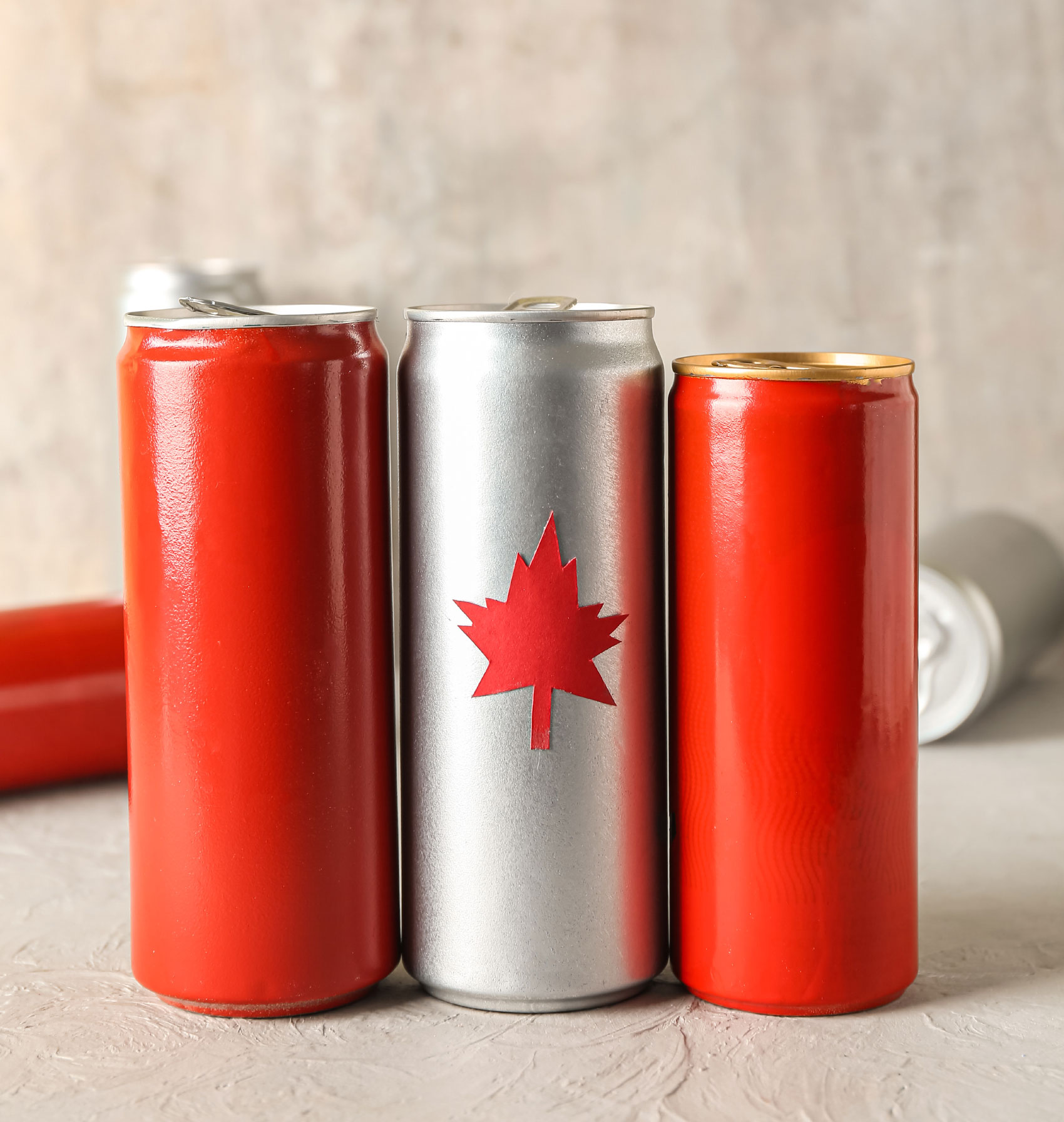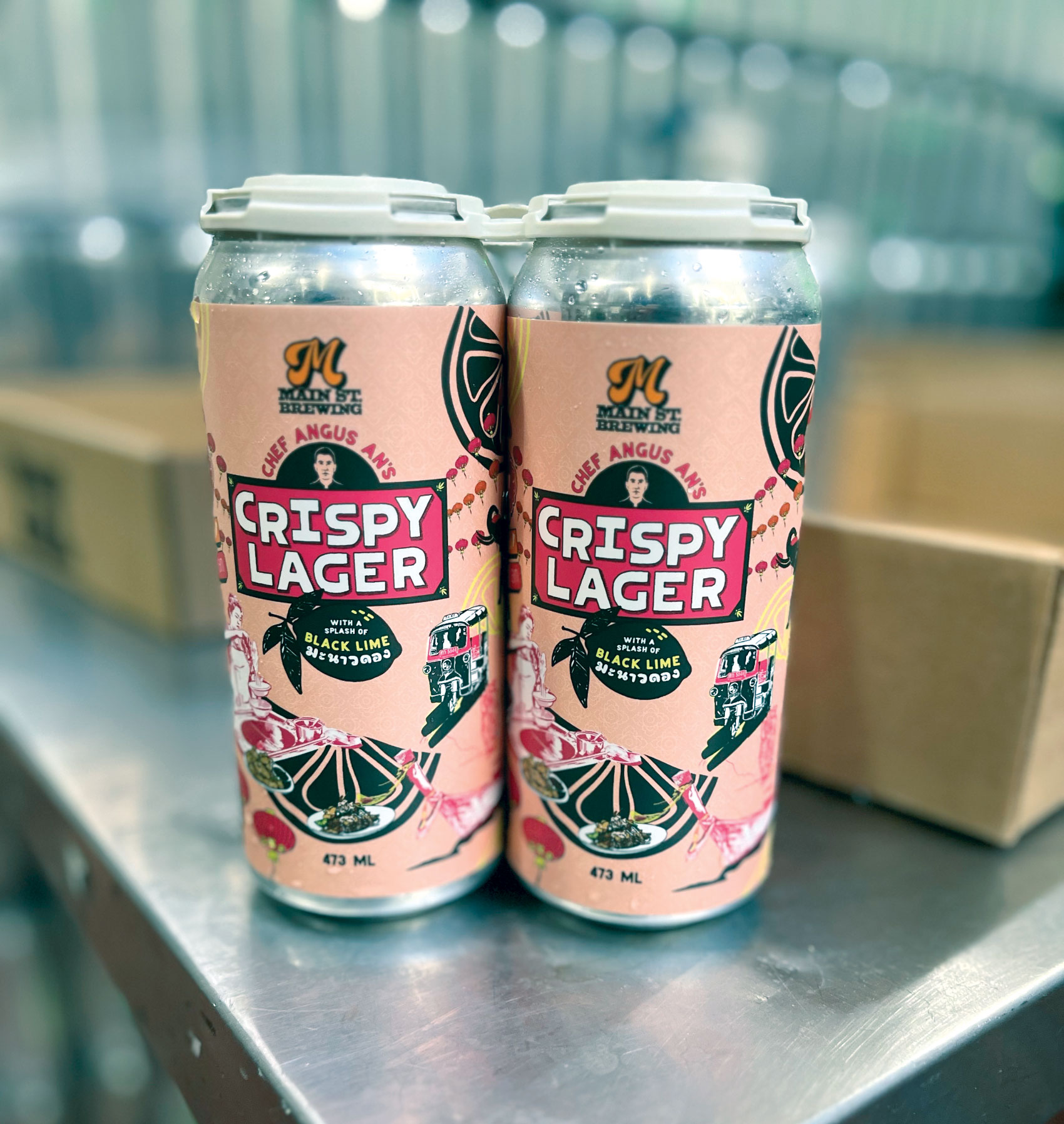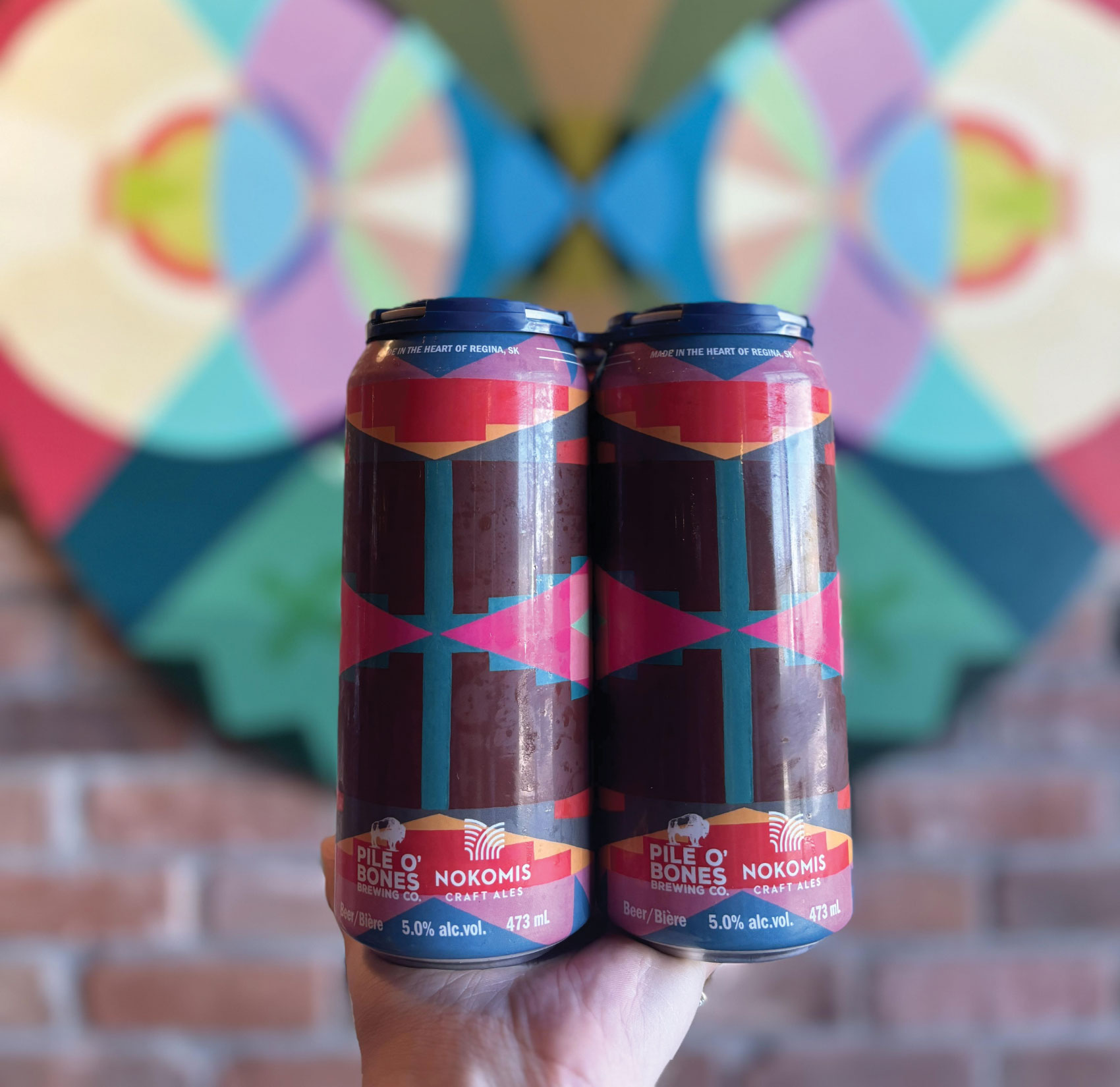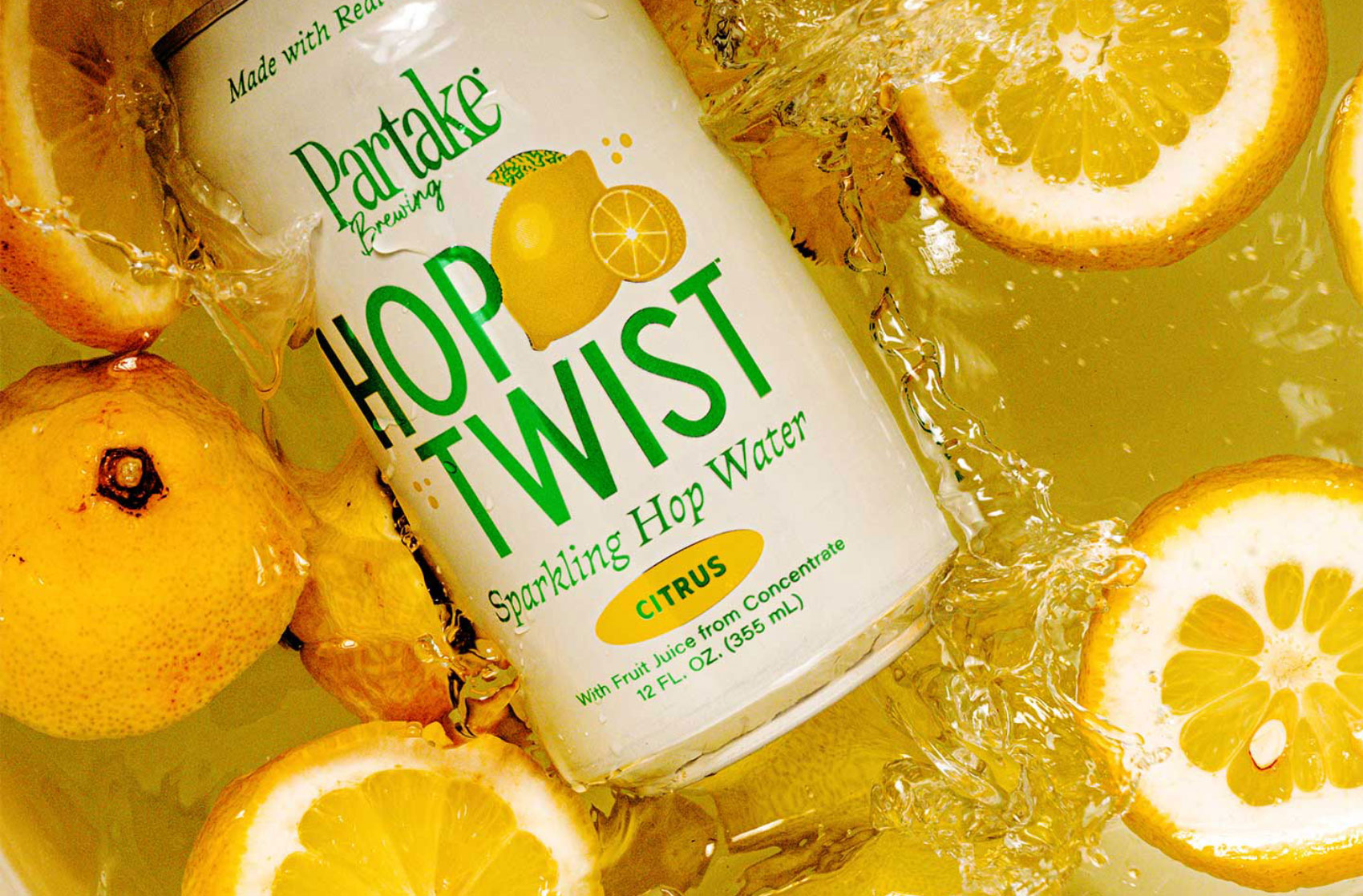Eighty-eight per cent of all beer consumed in Canada is made by Canadians. That simple, but stunning fact makes beer almost unique within Canada’s agri-food processing industry. Primary manufacturing, such as beer production, creates significant value, economic activity and wealth that many other commercial activities simply can’t provide. Transforming raw ingredients from a farmer’s field to a final consumer branded product on a retail shelf or bar draught tap entails a scope of activity that spins off economic benefits across many sectors of the economy – well beyond brewing alone.
Beer manufacturing in Canada is both an economic and social engine for large and small communities from coast to coast. As a grain-to-glass or farm-to-table industry, brewing creates jobs at every step of the journey. At a macroeconomic level, brewing contributes to the country’s gross domestic product (GDP) more than five times that of winemaking and distilling combined.
Canada’s relationship with beer began with the first European settlers, including those from France, England, Ireland and Scotland recognizing the land was well suited for beer production. Starting with premium grains and clean freshwater, they adapted their traditional brewing techniques to sow the seeds of today’s Canadian brewing sector. Now, Canadian brewers marry the best of these old-world brewing traditions with new-world innovation to provide a range of beer styles and flavours.
Canadian vs. Foreign Content: Beverage Alcohol Categories in Canada
| Category | By Sales Value | By Sales Volume | ||
|---|---|---|---|---|
| Canadian | Foreign | Canadian | Foreign | |
| Beer | 88% | 12% | 89% | 11% |
| Spirits | 45% | 55% | 52% | 48% |
| Wine | 30% | 70% | 40% | 60% |
Beer is as intimately tied to Canada’s culture and heritage as is hockey or maple syrup. Canadians continue to have a deep love for “their beer.”
Local brewers act as a community’s social hub, whether at their in-house taproom or at a neighbourhood pub. Sharing a few laughs, stories or discovering the next million-dollar idea over a beer provides a much-appreciated break from people’s busy lives.
Brewing in Canada has provided these benefits for generations of Canadians, but governments in Canada may not be doing all they need to do to ensure these benefits are available for future generations.
Beverage Alcohol Production Contribution to Canada’s GDP
| Industry | GDP |
|---|---|
| Breweries | $3,180,000,000 |
| Wineries & Distillers Combined | $628,200,000 |
In 2017, the federal government, under then Liberal Finance Minister Bill Morneau, increased federal beer excise duties by two per cent and introduced an annual inflation-indexing formula to raise rates automatically each year from then on. The cumulative effect of these increases has been a federal beer tax rate increase of nearly 14 per cent. These increases were imposed annually, even through the worst of the COVID-19 pandemic when out-of-home beer sales channels were no longer available due to the health-related closures of restaurants, festivals, professional sporting venues and similar venues.
Given that Canada already had among the highest beer taxes in the world and the highest in the G7, the impact of these punishing federal tax hikes was entirely predictable with depressed beer sales volumes and declining net federal revenues on beer sales.
In fall 2019, combined federal excise duty and GST revenues on beer sales reached $9.85 billion, but these decreased to an estimated $9.51 billion in fall 2023. While federal government revenues decreased by 3.4 per cent, beer sales volumes decreased by 9.3 per cent. Chasing ever higher tax rates while the brewing, hospitality and tourism sectors were fighting the economic challenges of a lifetime was short-sighted and misguided.
Estimated Total Beer Taxes as Percentage of Retail Price (G7)
| Canada | 46.4% |
| Japan | 44.7% |
| United Kingdom | 40.7% |
| Italy | 28.3% |
| France | 24.5% |
| Germany | 22.7% |
| United States of America | 17.0% |
A year ago, a huge coalition representing grain farmers, consumers, businesses, workers, hospitality and tourism sectors and brewers came together and demanded a change in policy direction. The coalition was partially successful in that Budget 2023 replaced the inflation-based scheduled 6.3 per cent beer tax increase with a two per cent increase, but it was a stop gap measure only.
Canada has seen a deteriorating market in recent months as the double punch of higher costs for almost all goods and services and higher interest rates have squeezed most family budgets to the breaking point.
Discretionary items like a dinner out or a beer after work are casualties of tightening belts. A hallmark of the parliamentary system and western Liberal government is that the legislature and elected officials vote on tax measures.
Discretionary items like a dinner out or a beer after work are casualties of tightening belts.
This basic and fundamental role of individual members of Parliament was taken from them in 2017 and must be restored. At that time, the Senate of Canada and the chair of the House of Commons standing committee on finance vigorously opposed this weakening of the role of elected officials and of ministerial accountability. Only after a tax measure is tabled in parliament and is subjected to open debate and consultation, then voted on, should new taxes be imposed on Canadians. Morneau short circuited this process and short-changed Canadians.
Raising beer taxes by nearly another five per cent on April 1, 2024, (as is now scheduled) must be put to a vote or be set aside.
Members of Parliament, of any political party, would likely oppose a beer tax hike when they take into account the following:
- Beer sales volumes remain well below pre-pandemic levels.
- 53 per cent of Canadian brewers selling less than $5 million annually were unprofitable in 2022.
- Taxes already represent 46 per cent of the price of beer in Canada, the highest rate of G7 countries.
- As of March 2023, over half of Canadian foodservice restaurants reported they were operating at a loss or simply breaking even.
- Beer is a key profit and revenue driver for licensed restaurants and pubs, generating significantly higher margins than available on food.
- The livelihoods of unionized and non-unionized brewery workers are entirely dependent on a healthy beer market.
- Tying commodity tax rates to inflation fuels higher inflation.
- Persistent high inflation puts upward pressure on interest rates.
- Canadian brewers buy 350,000 tonnes of malting barley each year valued at more than $175 million with these purchases being crucial for Canadian farmers.
- Brewing in Canada supports 149,000 jobs across its added-value supply chain and directly employs 21,000 well-paid jobs in breweries.
- Progressive tax policy should prioritize lower alcohol strength products such as beer, the typical alcohol content of which ranges between four and five per cent by volume.
- Canadian brewers need to continually invest in their facilities to remain globally competitive and leaders in environmental performance from facility water and energy use to container and packaging stewardship.
Once again, the coalition is working hard to encourage all members of Parliament to demand a debate and vote prior to any future beer tax increases.




